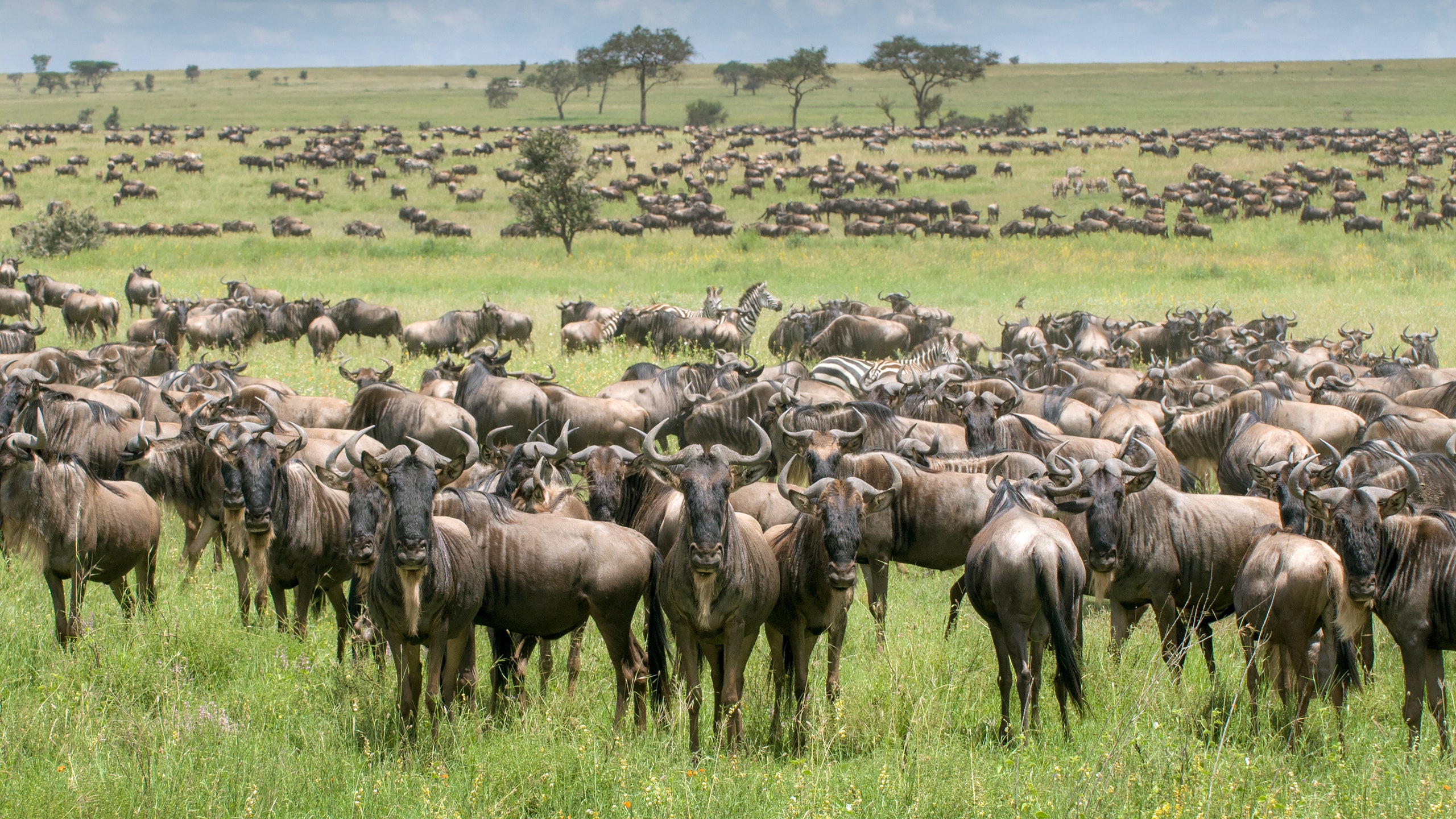The "Great Migration" is a spectacular sight, there’s no denying that. But with the herds of animals come waves of khaki-clad, snap-happy tourists. And many people are so hooked on the idea of getting a front-row seat to Africa’s greatest wildlife show that they don’t realize that the post-migration period is just as good—if not better. “It’s the secret season," says Deborah Calmeyer, CEO of safari outfitter Roar Africa. "The hordes of tourists have left, and yet the herds of animals have not.”
Anyone who has picked up a run-of-the-mill safari travel pamphlet will know that the Serengeti has long been marketed as a seasonal destination due to the migration, which sees up to 1.5 million wildebeest make their way from Tanzania's Serengeti plains to Kenya's Masai Mara in the north (and back again). Sure, there’s a dry season and a wet season, which normally runs from October to May, but the animals—even if better hidden in the rainy season—are always there. Still, getting this message across has been more difficult than expected, say safari insiders.
“Changing market perception, in order to understand that game-viewing at Singita Grumeti is exceptional all-year round, has been challenging,” says Luke Bailes, owner and CEO of Singita. “Game viewing is better after the migration passes (September), as the animals mow the grass, which attracts a huge diversity and abundance of wildlife." Nicky Fitzgerald, owner and operator of Kenya’s luxury lodge Angama Mara, notes that you'll also probably get better Instagrams: “As the wet season approaches, there is less dust, making conditions perfect for wonderful photography," she says.
Like during any low season, visitors who go after the migration will experience lower rates, as many lodges offer reduced costs to incentivize travelers. But what many visitors don’t realize is that visiting out of season also has a huge effect on many of the surrounding villages, whose communities rely heavily on these lodges for work.
“Casual labor pools are drawn from surrounding villages, and vegetables and other supplies are purchased from communal gardens—this source of income greatly assists these communities," says Darren Humphreys, founder and owner of Travel Sommelier, a luxury travel concierge company. "When income dwindles out of season, it creates the negative effect of job seasonality. An artificial economy has been created, and some departing workers are unable to return."
So why not opt to visit after the migration? As Humphreys puts it, “You’ll see the same animals (although fewer wildebeest herds), in relative peace, with a much smaller footprint of camera clickers.” See you in the Serengeti.

